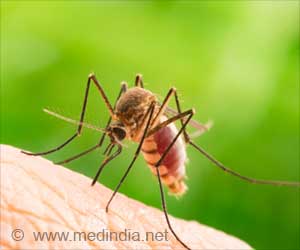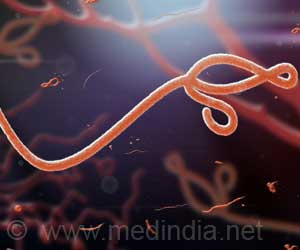Chloroquine, used for malaria treatment, has also shown to normalize the abnormal blood vessels in tumors, in a recent study by investigators at VIB and KU Leuven.

Chloroquine is a well-known medicine with a good safety profile that has been in use since World War 2 for the treatment of malaria and certain auto-immune diseases, including rheumatoid arthritis. More recently, chloroquine has also been used in anti-cancer treatment. Chloroquine blocks autophagy, a process that cancer cells use to survive to anti-cancer treatments. Therefore, blocking autophagy would reduce the resistance of the cancer cells to chemotherapy.
Normalization of abnormal tumor blood vessels
Hannelore Maes from the team of Patrizia Agostinis (KU Leuven), together with Anna Kuchnio from the team of Peter Carmeliet (VIB-KU Leuven) have started a study to explain how chloroquine can strengthen the effect of anti-cancer treatments.
"Although it is assumed that chloroquine strengthens anti-cancer treatment by blocking autophagy, there is little in vivo evidence that this is the only way in which chloroquine works. In this study, we found that chloroquine not only has an effect on the growth of the cancer cells, but also makes the tumor environment less aggressive by normalizing the abnormal blood vessels in the tumor", says Patrizia Agostinis.
Peter Carmeliet: "Blood vessel normalization results in improved tumor perfusion. This reduces the aggressive nature of the cancer cells and means that the anti-cancer medicines are better able to reach the cancer cells, which makes chemotherapy more effective. In addition, tumor blood vessel normalization also increases the barrier function of the blood vessels, which reduces the access of cancer cells to the circulation – the most important transport system for the spreading of cancer cells to other tissues. Therefore, chloroquine can nip the metastatic spreading of cancer cells in the bud, which is the most important therapeutic goal in any tumor treatment."
This study forms a new rationale for the use of chloroquine in anti-cancer treatment. With a view to clinical studies (tests on humans) it is important to note that the effects on the tumor vasculature were even observed at chloroquine concentrations that had little effect on autophagy in the cancer cells. This sheds new light on the therapeutic schedule for combination therapy with chloroquine, which could result in decreased toxicity. In other words, the same "old" medicine simultaneously targets the cancer cells themselves and the blood vessels with great efficiency.
 MEDINDIA
MEDINDIA




 Email
Email









